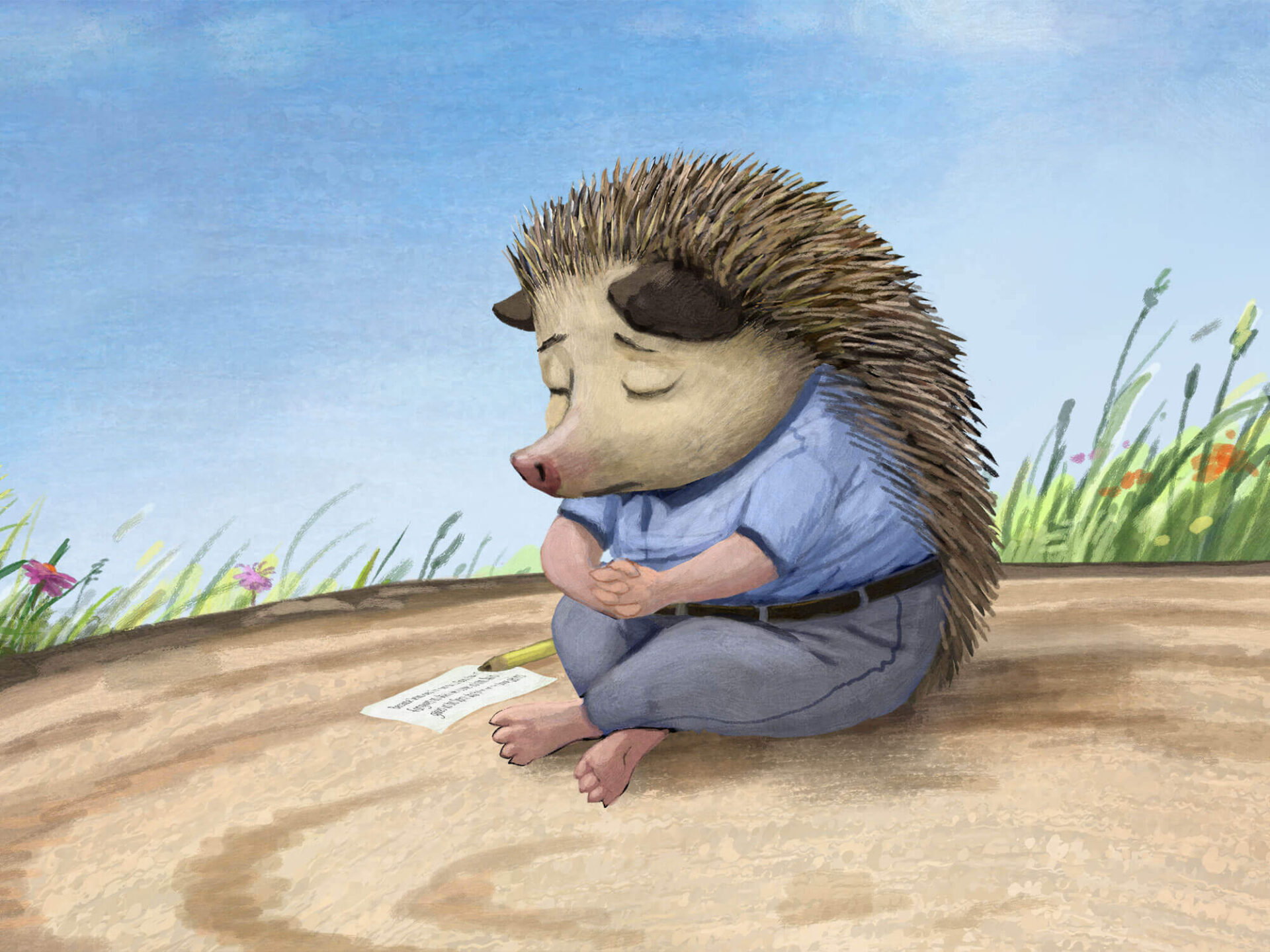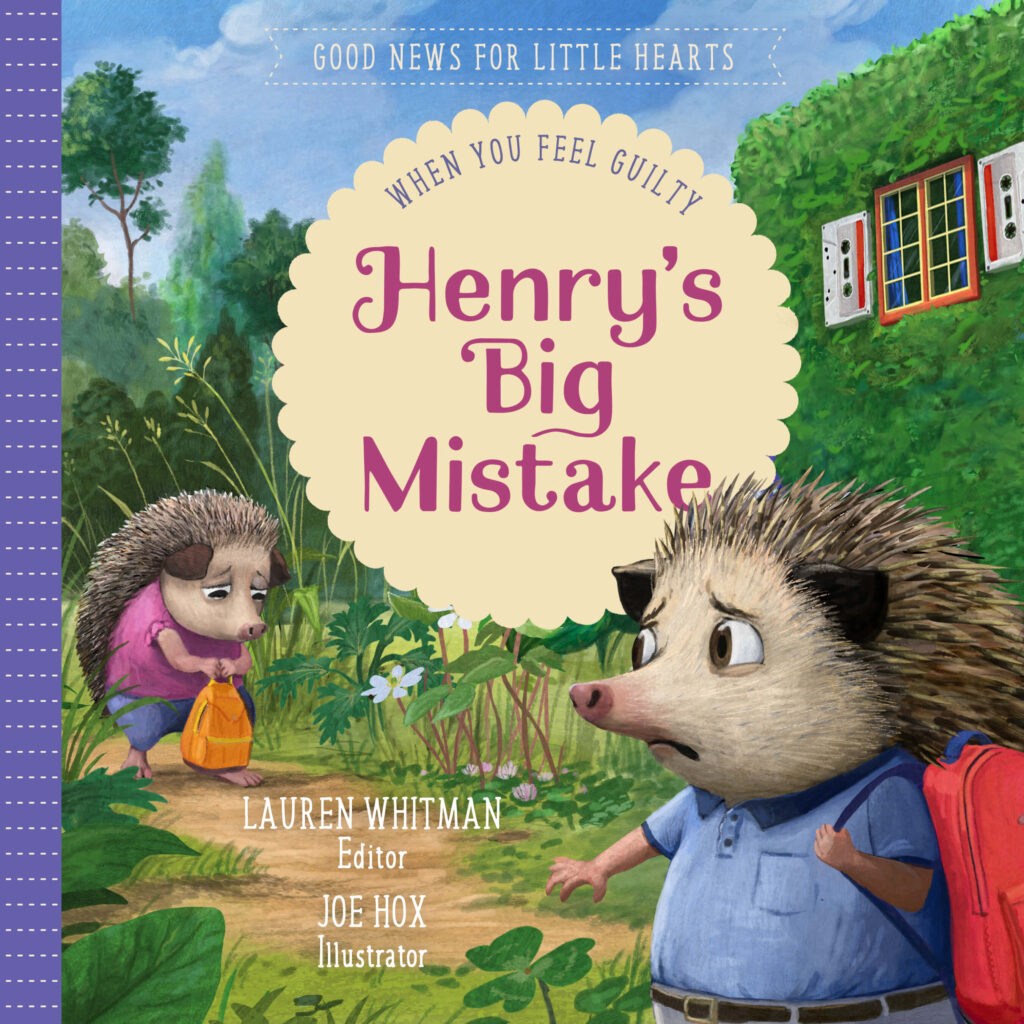We can feel guilty for different reasons. Sometimes we feel guilty about accidents. For example, you’re running the bases playing softball and collide with another player who falls and breaks their arm. Though you feel guilty and the person might be unhappy with you, you have not sinned. When children have accidents, a parent can explain how whatever it was that happened wasn’t the child’s fault (although it usually makes sense to apologize to the unhappy person). When we feel guilty about a non-moral matter such as the softball accident, this is false guilt.
True guilt that comes after we sin. Remember when talking to a child about feelings of guilt, the child will probably need help understanding the word “sin.” A short explanation is that sin is anything that is not loving toward God and people. For example, a child could have sinned against his sister by being unkind. He then feels guilty because he is guilty. His bad feelings are a clear sign of his need to confess his sin to God and ask his sister for forgiveness.
With an understanding of true guilt, teach your children what to do when they feel guilty. Here are some ideas:
1. Help your child identify feelings of guilt.
Ask them how they feel after they’ve done something wrong. Feelings of guilt can be hard to describe, so put words to it for them. For example, you can talk about how the child who teased his sister felt all weekend after making her cry. Maybe he was worried his dad would find out. When he saw that his sister was sad, he avoided her because he didn’t know what to do. He tried to forget what happened—but he couldn’t. He missed playing with her; their usual interactions changed because all wasn’t right between them.
2. Initiate conversations where you talk through instances of feeling guilty.
You go first. Offer an example from your life that can help them get a sense of guilt that comes after having sinned.
3. In your home, create rhythms of both confession and seeking each other’s forgiveness.
We sin every day, so make it normal and regular to confess sin and seek forgiveness from one another. Model this. Be on the lookout to do this; these are opportunities to lead by example, to model humility, and to show what it means to live in the light before God and others.
4. Walk your children through the process of confession and restoration.
Model this process for them after you have sinned, and coach your child through these steps when they have sinned.
- When we confess sin we put words to what we did that was wrong. We speak these words to God; we speak them to those we have hurt. We are specific.
- After confessing sin, the next step is to ask God to forgive us for that specific wrong choice we made.
- If we sinned against another person, we ask them to forgive us, too. Saying “I’m sorry,” is not the same as saying “Please forgive me.” Saying “Please forgive me” means you accept responsibility for sinning against the other person and that you recognize that you are in need of their mercy. Talk about praying to God for forgiveness and seeking the forgiveness of the person we hurt.
- Finally, we give thanks to God for forgiving us. In prayer, we thank God for his mercy. We thank him for removing the stain of sin from us. We thank him for Jesus who took the punishment for us so we could be recipients of God’s grace.
5. Talk to your children about how we can trust that God forgives us when we ask because this is what he promises to do in the Bible.
Trusting God means we believe that God forgives us—and we believe that he is even pleased to forget our bad choices! We trust that Jesus cleans us from all of our dirtiness. He will always meet us with his mercy when we come to him. He washes us as clean as clean can be, and then we are free to enjoy him and enjoy others, to serve him and to serve others (Hebrews 9:14)! There might be times we doubt that this could be true, and in those times we commit to rejecting the guilt and lean into God’s gracious, reassuring words to us in verses like Isaiah 43:25 and 1 John 1:9. We speak about God’s grace to one another, to our own hearts, and to God. He delights to show us mercy! He wants us to return to him and greets us joyfully when we do (Luke 15:11–32).
6. Help your child see God’s heart for them.
Life does not go well when we hide our sins (Proverbs 28:13)—and feeling guilty is one way life becomes difficult. But God wants our lives to go well! And we can be so sure of God’s heart for us because he gave us Jesus, who took on the punishment of sin for us so we could be forgiven of our sins, and so we could be freed from the guilt that comes from our sin.
Because God loves us, he wants us to be free of feeling guilty.
The above content was adapted from Henry’s Big Mistake: When You Feel Guilty. © 2022 by Lauren Whitman. May not be reproduced without prior written permission.
Henry’s Big Mistake: When You Feel Guilty
When Halle gets new braces she has trouble saying some words. This irritates her brother Henry and one day he teases her in front of their friends and really hurts Halle’s feelings. Now Henry has this nagging feeling inside that he can’t make go away. He tries to just be nice to Halle, but that doesn’t help anything. When he learns from Mrs. Bixby about guilt and what God wants us to do after we sin, he gains the courage to make things right with God and with Halle.






